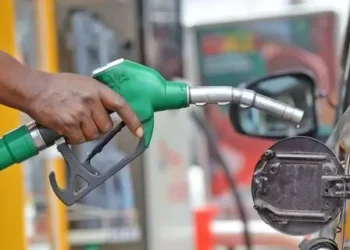Nigeria will produce 1.5 million barrels per day of oil in 2024. This is according to a November 30 press release from the Organisation of Petroleum Exporting Countries (OPEC).
Following the group’s meeting on Thursday, OPEC decided that Nigeria would be assigned a higher quota than the initial 1.38 million barrels per day proposed in June 2023.
However, the not-so-good news is that the country’s oil production quota for 2024 will be less than its 1.78 million barrels per day for 2023.
A part of the OPEC press release stated:
- “Following the decision of the 35th OPEC and non-OPEC Ministerial Meeting, the completion of the assessment by the three independent sources (IHS, Wood Mackenzie and Rystad Energy) for production level that can be achieved in 2024 by Angola, Congo and Nigeria as follows: Angola at 1,110 t/bd, Congo at 277 t/bd and Nigeria at 1,500 t/bd.”
Backstory
In recent days, Nigeria and other African oil producers expressed unwillingness to produce significantly slashed production quotas and this led to a postponement of the OPEC meeting.
In Nigeria’s case, the proposed quota was 1.38 million barrels per day, which would have significantly reduced the country’s chances of attracting more upstream oil investments.
Note that, despite the current battle against crude oil theft in the Niger Delta region, Nigeria was able to reach 1.5 million barrels per day in both September and October 2023.
According to sources within the Tinubu Presidency, there is an unwavering commitment to tackle crude oil theft decisively.
One of the latest action steps in this regard as revealed by the Nigerian National Petroleum Company Limited (NNPCL) via its weekly Energy and You series, is telling the public how many crude theft perpetrators were arrested as weekly reports are given on progress made against the menace in the region.
Production cuts
Reuters reports that following the Thursday meeting, OPEC+ decided to reduce the amount of oil they’ll produce at the beginning of next year. This cut totals about 2.2 million barrels of oil per day.
Saudi Arabia is leading this reduction by continuing its current cut. The UAE agreed to reduce its oil production by 163,000 barrels per day, and Iraq plans to cut an additional 220,000 barrels per day for the first three months of the year.
After this initial period, countries like Saudi Arabia, Russia, the UAE, Iraq, Kuwait, Kazakhstan, and Algeria intend to gradually increase production, depending on how the oil market is doing.
OPEC+ wants to produce less oil because the prices have dropped from almost $98 in late September. There are worries about the global economy slowing down in 2024, and there’s an expectation that there will be more oil available than needed.
Additionally, Brazil will become a part of OPEC in January 2024.
Note that as of Friday at 5:34 AM, GMT+1, Brent crude was trading at $82.83 per barrel.






















